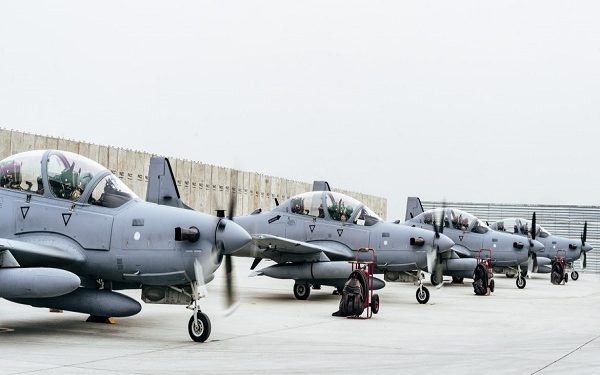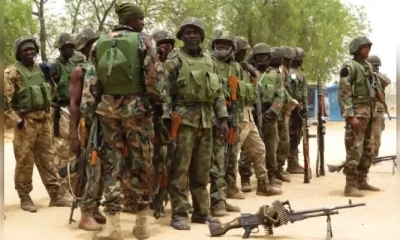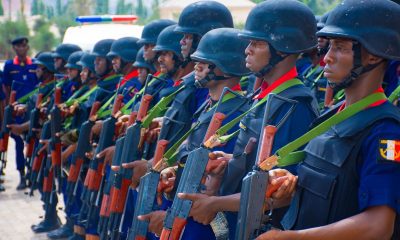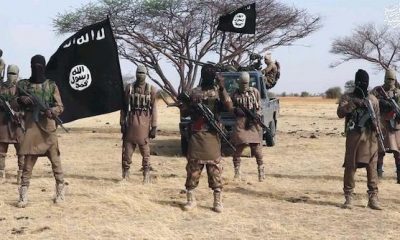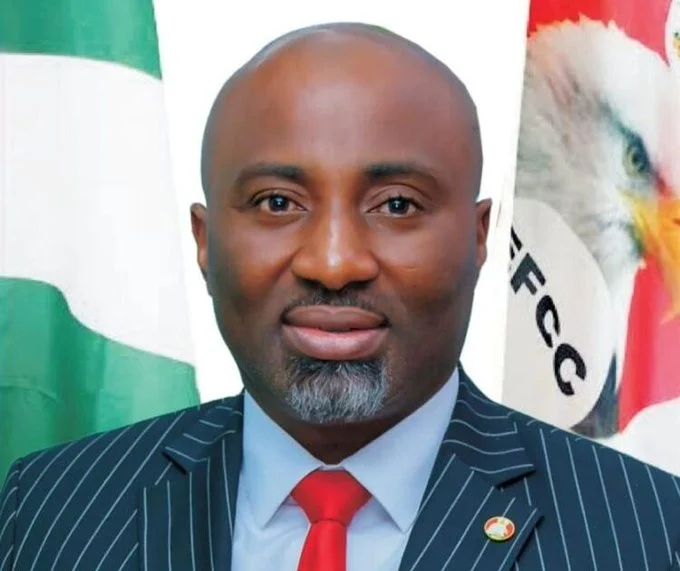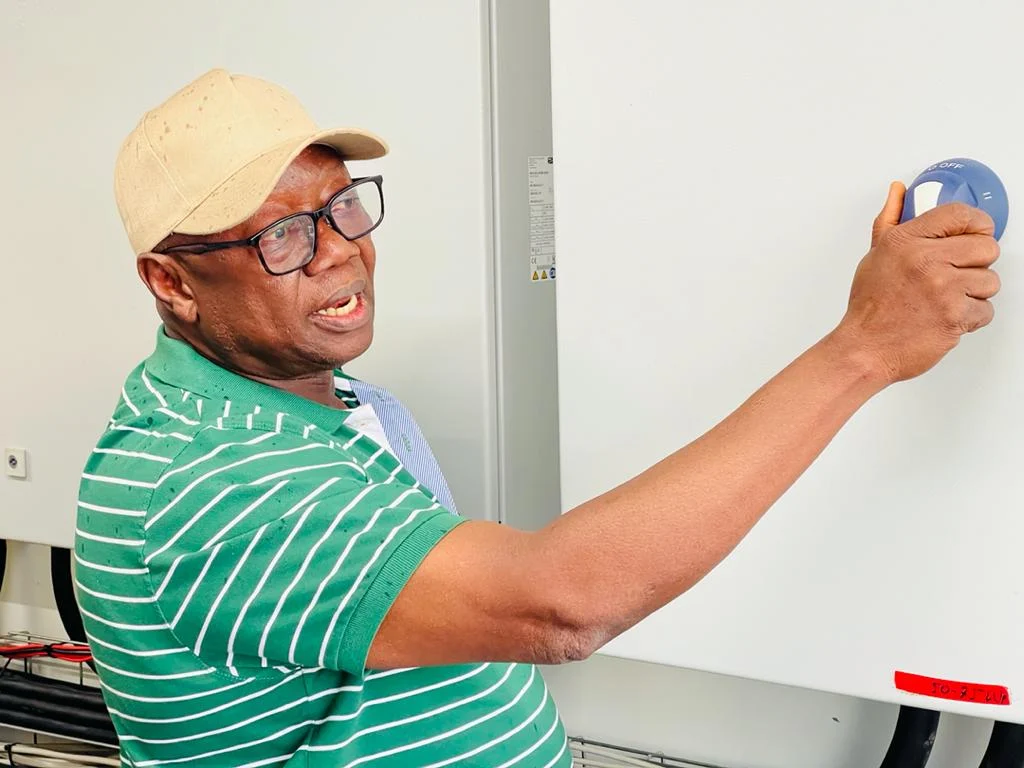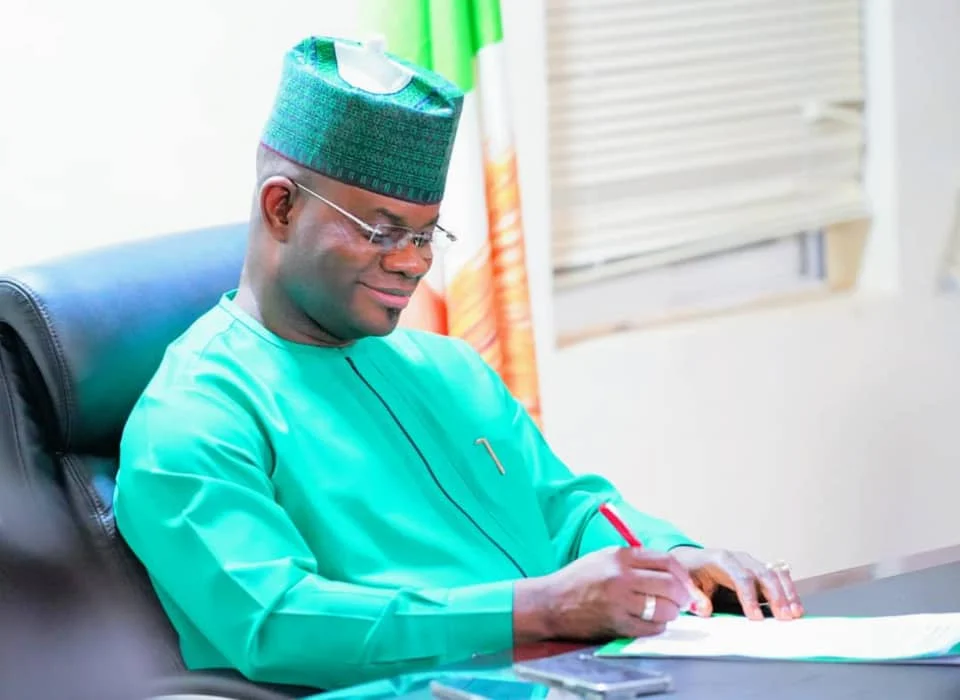The battle against bandits and terrorists has entered another stage with the deployment of six United States-made A-29 Super Tucano fighter jets by the Nigerian Air Force (NAF).
They are part of the 12 of such aircraft procured for $500 million by the Federal Government to fight insurgency in the country – especially in the northeast and banditry mainly in the Northwest and Northcentral.
The six jets arrived the country on Thursday July 22, this year. The remaining six will be delivered before the end of the year.
Minister of Defence Maj.-Gen. Bashir Magashi (rtd), inducted the flight jets into “order of war” in Abuja yesterday on behalf of President Muhammadu Buhari, who is the Commander-in-Chief of the armed forces.
They were added to the fleet of the NAF. The $500 million purchase price made the 12 Super Tucanos the highest single arms purchase in sub-sahara Africa according to the U.S. Department of Defence.
The Commander, U.S Air Forces Europe-Africa Gen. Jeffrey Harrigian described the Super Tucanos as impetus for significant deepening of training and professional relationships.
He said: “The Nigerian Air Force is one of our key partners that plays a critical role in furthering regional security and stability.
“This ceremony symbolises the strength of our unique partnership and underscores the value of training and working together.”
According to him, the precision targeting, air-to-ground integration, and human rights training are all included in the partnership between the U.S. and Nigeria.
Gen. Harrigian stated that the aircraft will assist the NAF in the fight against violent extremist organisations, including the Islamic State West Africa Province (ISWAP).
He explained that the joint structure of air-to-ground integration also supports Nigerian Army and Navy operations.
The U.S. official said: “Nigeria purchased the A-29s through the Foreign Military Sales programme, which follows the Department of Defence’s ‘Total Package Approach’ model and includes spare parts for several years of operation, contract logistics support, munitions, and a multi-year construction project to improve Kainji Air Base infrastructure.
“The total sale is valued at almost $500 million, making it the largest FMS program in sub-Saharan Africa.”
Speaking on the capabilities of the fighter jets, Gen. Harrigian and the U.S. Ambassador to Nigeria, Mary Leonard, said the A-29 can perform intelligence, surveillance, reconnaissance and precision air-to-ground strikes, strengthening Nigeria’s ability to fight terrorism./
The General said: “The A-29 is a prime tool to help Nigeria combat violent extremism and is vital to sustained deterrence.
“The total package deal – aircrew and maintainer training, precision-guided weapon delivery, and more—highlights our enduring partnership with the Nigerian Air Force and our commitment to enabling their successes where we can”
He said a total of 64 NAF pilots and maintainers were trained to U.S. standards with the U.S. Air Force’s 81st Fighter Squadron at Moody Air Base in Georgia, USA.
Gen. Harrigian said the training also emphasised the Law of Armed Conflict and civilian casualty mitigation, which are fundamental principles of the Nigerian military’s professional education and training.
He said as part of the programme, the U.S. Army Corps of Engineers is providing $36.1m in infrastructure support to the A-29s’ home base, Kainji Air Base, including a covered magazines and aircraft sunshades, a new airfield hot cargo pad, perimeter and security fencing, airfield lights, and various airfield apron, parking, hangar, and entry control point enhancements.
The infrastructure package also includes a flight annex wing building for simulator training as well as munitions assembly and storage and small arms storage.
He added that the USACE has also stationed a project engineer at Kainji to provide ongoing maintenance and assistance.

 News3 years ago
News3 years ago
 Entertainment2 years ago
Entertainment2 years ago
 News3 years ago
News3 years ago
 Privacy3 years ago
Privacy3 years ago
 Sports2 years ago
Sports2 years ago
 Entertainment2 years ago
Entertainment2 years ago
 News3 years ago
News3 years ago
 Opinion3 years ago
Opinion3 years ago
